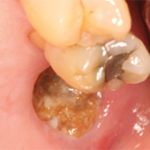View 3
Bisphosphonate Use Is Not Associated with a Reduction in All-Cause Mortality or a Reduction in CV-Related Mortality
Numerous studies have failed to demonstrate a protective benefit of bisphosphonates either for all-cause mortality or for CV-related mortality. The HORIZON Pivotal Fracture Trial (HORIZON-PFT) was a landmark randomized, controlled trial that established, along with the HORIZON-RFT, that once yearly infusions of zoledronic acid significantly decreased incidence of clinical fractures.21 Interestingly, this study did not demonstrate a survival benefit, in stark contrast to the results of HORIZON-RFT.
According to HORIZON-PFT, 112 patients (2.9%) in the placebo group died during the three-year study period, compared with 130 patients (3.4%) in the zoledronic acid group.21 Further, no statistically significant difference was observed in death from CV causes or MI between the two groups.21 In fact, an increased incidence of serious atrial fibrillation was observed in the zoledronic acid group.21
A full discussion of the relationship between bisphosphonates and atrial fibrillation is outside the scope of this article; however, a recent study seeks to add clarity.22 It is not clear why the two HORIZON studies did not reach the same conclusion.
Turning to CV-related morality, it should be noted that many studies failed to detect a difference.
Several systematic reviews similarly failed to find an association between CV mortality and bisphosphonate use. One review conducted by Kranenburg et al. examined the pooled relative risk (RR) of 20 studies (published up to 2016) and did not find a benefit of bisphosphonate treatment on CV events.23 As demonstrated in other studies, a non-significant trend toward lower risk for all-cause mortality and CV mortality was observed in patients treated with bisphosphonates.23
A systematic review from Kim et al. found that bisphosphonate treatment for up to 36 months did not have a significant effect on total CV events (14 trials; absolute risk 6.5% in bisphosphonate treated patients vs. 6.2% in patients not treated).24 Likewise, no effect was observed of bisphosphonate use on MI, stroke and CV death, because pooled odds ratios were not significantly different between the groups.24
In contrast, a randomized, controlled trial conducted by Reid et al. demonstrated a trend toward fewer vascular events (including MI), as well as lower mortality rates among 1,000 women with osteopenia who were treated with zoledronic acid.25
A follow-up safety study, examining detailed adverse event data from the trial, found a lower risk of MI and CV events in the treatment group.14 Study authors concluded that zoledronic acid use may result in fewer vascular events, as well as less cancer; however, these events were not primary endpoints of the original study, and the study was not powered to detect a difference.


